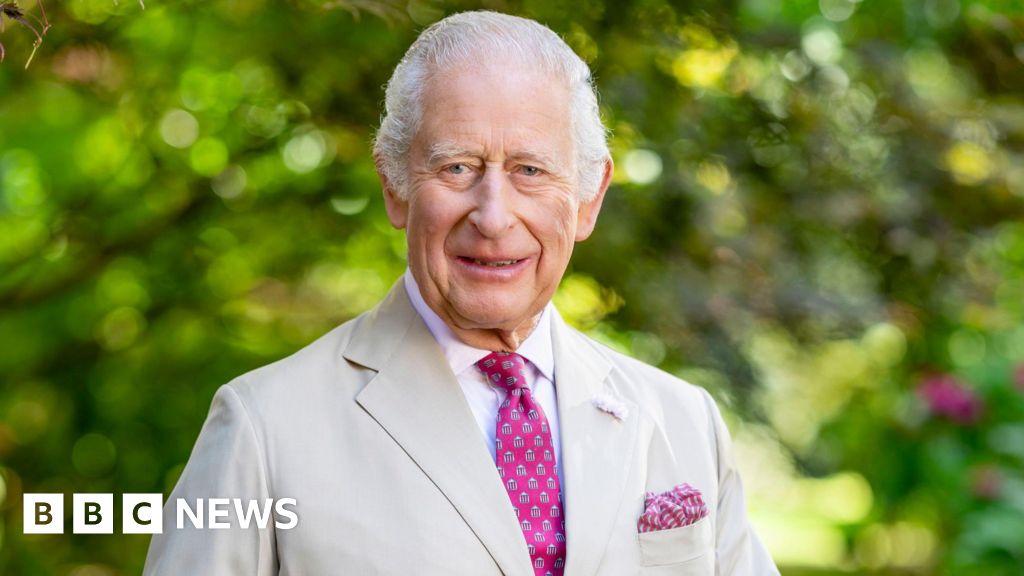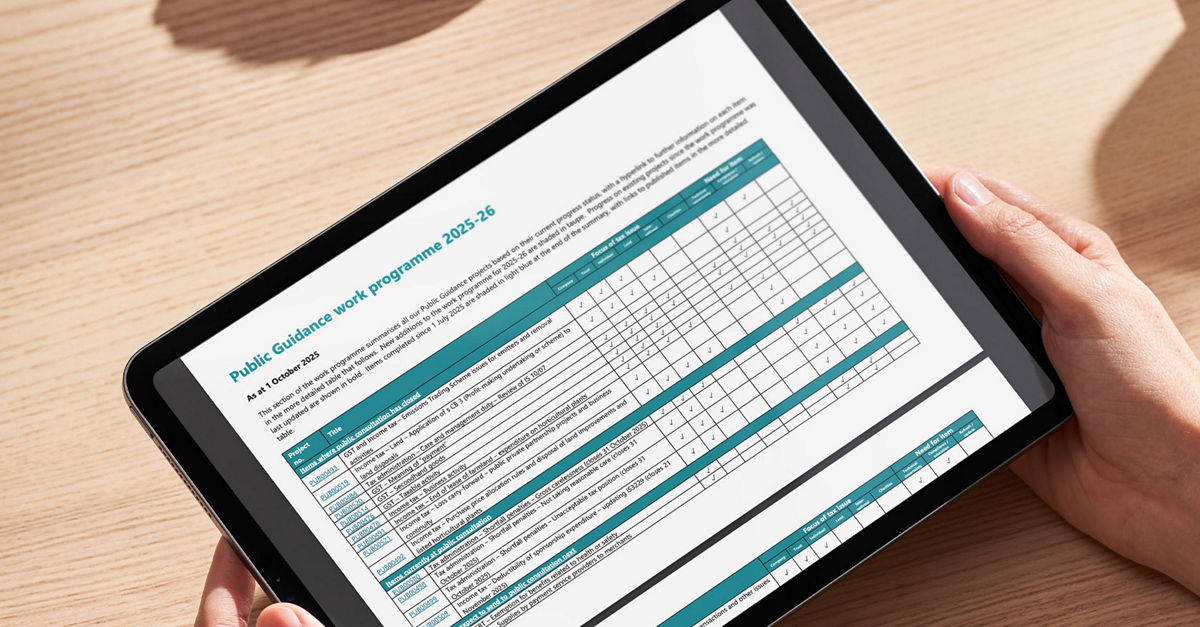Pharmacists are being stretched thin by competing job demands, as pharmacy chains prioritize prescription speed and volume over diabetes care support, a new CCS survey finds.
Between 2010 and 2021, nearly one-third of all retail pharmacies in…

Pharmacists are being stretched thin by competing job demands, as pharmacy chains prioritize prescription speed and volume over diabetes care support, a new CCS survey finds.
Between 2010 and 2021, nearly one-third of all retail pharmacies in…

Elon Musk has agreed to settle a $128m (£100m) lawsuit brought by four former top executives at Twitter, now X, over unpaid severance when he took over the company.
The executives, who include former chief Parag Agrawal, argued that Mr Musk fired them “without reason” after he bought Twitter in 2022 and denied them severance payments.
“The parties have reached a settlement and the settlement requires certain conditions to be met in the near term,” attorneys for the plaintiffs wrote in a court filing last week. They did not disclose the terms of the settlement.
The suit, filed last year, is one of several legal challenges over unpaid severance for workers who were laid off after Musk took over.
Lawyers for the former Twitter executives, and for Mr Musk and X, did not immediately respond to requests for comment on the settlement.
The former top brass – Mr Agrawal, former chief financial officer Ned Segal, former chief legal officer Vijaya Gadde and former general counsel Sean Edgett – contended in their lawsuit that they are owed one year’s salary and stock awards, under a years-old severance plan.
They also said Musk’s move was part of a pattern of refusing to pay former staff what they were due.
In August, Mr Musk and X agreed to settle a separate lawsuit filed by roughly 6,000 former rank-and-file Twitter employees who argued they were owed $500m in severance pay.
Mr Musk purchased Twitter in 2022 for $44bn, after initially trying to back out of his offer. After the acquisition closed, he immediately moved to fire top leaders at the company, including the four executives. Mr Musk slashed Twitter’s workforce by more than half.
In their lawsuit, the former top officials contend that Mr Musk was frustrated about being forced to complete the purchase and that the billionaire falsely accused them of misconduct to push them out.

Sean CoughlanRoyal correspondent
 Millie Pilkington/ King’s Foundation
Millie Pilkington/ King’s FoundationKing Charles says he wants to inspire a “sense of determination” to protect the…

It’s safe to say the Nintendo Switch 2 is the game console to get this year, and if you already got your hands on one, you’ve probably loaded it up with all your old Switch games and new Switch 2 games. If you haven’t thought about adding more…

Fresh from launching his first Apple playlist earlier this year, King Charles is now fronting a new doc feature on Amazon Prime Video.
“Finding Harmony: A King’s Vision,” set for release globally in early 2026, will chronicle what…


Neal won the fight via knockout, the first man to stop the Brazilian via strikes, and Luque was diagnosed with a subdural hematoma — a bleed on the brain — that instantly put his career in jeopardy. Luque was medically suspended for a year…

By Campbell Rose, Greg Mitchell & Anna Roche
In September 2025 Inland Revenue published Interpretation Statement 25/19 Whether an off-market share cancellation is made in lieu of the payment of a dividend (IS 25/19), which finalised the draft interpretation statement (IS) issued for public consultation earlier this year and replaces previous guidance from 1999.
As we discussed in our May 2025 Tax Alert article the draft IS was, generally, welcome updated guidance on whether a share cancellation is in lieu of a dividend. However, it was not without some potential fish-hooks, which were raised with officials as part of the consultation process. We summarise below how some of those submissions fared.
Some suggestions raised in submissions included that:
The finalised IS 25/19 included the usual minor ‘tidy ups’ and clarifications that arise through the consultation process, as well as some notable changes, including:
Areas not updated in IS 25/19
Inland Revenue did not address all of the key concerns that were raised in submissions.
IS 29/15 does not acknowledge that non pro-rata buy-backs generally should not be considered to be in lieu of a dividend (other than in rare circumstances). This point is of fundamental importance to investment companies, as their business model is often to redeem or cancel the shares of some shareholders while contemporaneously issuing new equity to other shareholders. A clear statement providing guidance in this context would have been a welcome addition to provide certainty; instead it appears that the tax implications will need to be firmly grounded in the commercial drivers specific to the business model and particular redemption(s)/re-issuance(s).
Inland Revenue did not consider there was scope to apply a purposive approach to interpreting the “all or nothing” nature of the tainting language in the in lieu of dividend rule, based on the legislation as drafted and its intended scope. This issue has been referred to policy officials for further consideration.
“Dividend avoidance/integrity” is currently, and we expect will continue to be, a key focus area for Inland Revenue. It represents an area of avoidance-related investigation where Inland Revenue’s enquiries can be assumed to commence from a sceptical starting point – and potentially in scenarios where the statutory time bar may not apply.
Accordingly, in defending a share cancellation as being genuine, it will be critical to retain objective evidence that compellingly supports the commercial reasons underpinning the cancellation. This needs to then be appropriately weighted with the other statutory factors in section CD 22(7) of the Income Tax Act 2007 to support a position that none of the amount paid is in lieu of a dividend.
As IS 25/19 has been updated to include reference to “inexplicable accumulation of earnings”, “examin[ing] the source of (…) funds” for “objective evidence that they represent genuine surplus capital and not simply accumulated profits”. In the context of examples the analysis also uses new terminology of dividends being “effectively deferred”, and “utilis[ing] a bank account of accumulated profits”.
It is therefore imperative that companies tread carefully in this area, given heightened Inland Revenue scrutiny of the capital/revenue (dividend) boundary. As we noted in our May 2025 article, obtaining appropriate specialist tax advice and achieving valuable certainty through a binding ruling before undertaking a share cancellation, warrant serious consideration.
If you have any questions on IS 25/19 or the tax implications more generally of share cancellations, please contact your usual Deloitte advisor.

Having retired from T20Is, white-ball spearhead Mitchell Starc is aiming to end his decade-long drought in the BBL
Mitchell Starc is aiming to end his 11-year Big Bash…

By Joe Sothcott & Robyn Walker
The Public Guidance Work Programme is a frequently overlooked yet invaluable publication produced by the Inland Revenue’s Tax Counsel Office. The Tax Counsel Office (TCO) is responsible for determining the Commissioner of Inland Revenue’s view on the tax laws and provides advice on tax technical matters, as well has having some oversight as to how tax laws are implemented within in the Inland Revenue.
The Work Programme tracks the status of priority interpretation items under development. With the latest update published on 1 October 2025 we take a look at what’s currently included, what’s missing, how it’s compiled, and what new items have been added.
What Is the Public Guidance Work Programme?
The Work Programme currently includes only items issued by the TCO, specifically:
While both are non-binding, they are considered authoritative and are widely relied upon by taxpayers and advisors.
The Work Programme does not include items produced by the Technical Standards team, such as:
For example, the Draft Standard Practice Statement on Mutual Transactions of Associations (ED0265) is not listed in the Work Programme. Deloitte understands that, after public consultation over the draft guidance, the item is now on hold pending referral to Inland Revenue’s Policy team for a potential policy change.
Deloitte’s view is that all public guidance items, whether from the TCO Office or the Technical Standards team, should be published in a single consolidated work programme. This would improve transparency and make it easier to identify when items are on hold pending policy consideration.
How Is the Work Programme compiled?
The Work Programme includes:
Transparency is the underlying principle of the Public Guidance Work Programme. TCO refreshes the Work Programme annually, and prior to each refresh, it invites public submissions on technical issues, gaps in existing guidance, and emerging areas of uncertainty. Submissions generally can be made via email or via an Inland Revenue form. Keep an eye out around mid-2026 for the next opportunity to contribute submissions for the Work Programme.
Once submissions are received, the TCO evaluates them based on:
A draft Work Programme is then prepared and circulated to key stakeholders for feedback (including on relative priority) before the final version is published.
What’s new in the 2025–26 Work Programme?
The refreshed Work Programme includes a long list of new items:
Some taxpayers may understandably have trepidations about a few of the items and whether they may open a pandora’s box where interpretation doesn’t match reality, in light of the open-loop gift cards debate that arose from the publication of QB 25/07: What is the income tax treatment of gift cards and products provided as trade rebates or promotions? Other items, such as guidance on often misunderstood areas, like how taxpayers can apply the 100% depreciation rate for low value assets under section EE 38, will be more welcome.
Want to suggest an Item?
We understand that raising issues for inclusion in the Work Programme can feel daunting—especially if there’s concern it might attract unwanted scrutiny. For those may feel uneasy about contact the TCO direct, Deloitte is always happy to raise issues on behalf of clients. If you have questions or would like to discuss a potential submission, please reach out to your usual Deloitte advisor.